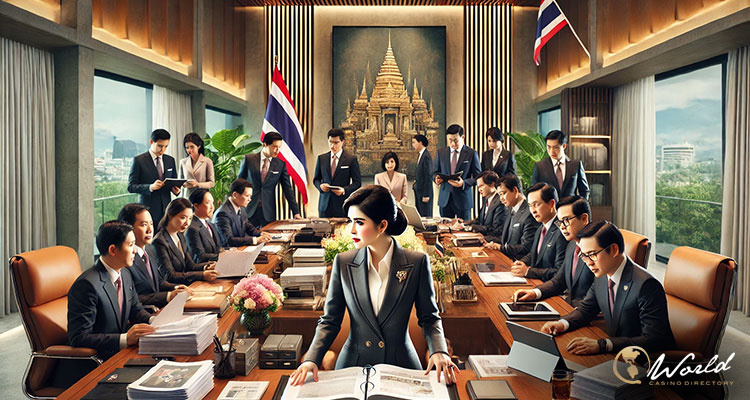Paetongtarn Shinawatra has officially been endorsed as Thailand’s new prime minister, following a formal endorsement by King Maha Vajiralongkorn on Sunday. The 37-year-old leader, the youngest prime minister in the country’s history, was voted in by the Thai parliament just two days after her predecessor, Srettha Thavisin, was removed from office by the Constitutional Court. Now, Ms. Shinawatra faces the immediate challenge of assembling her cabinet, a process expected to conclude in the coming weeks.
Paetongtarn Shinawatra’s appointment marks the continuation of a significant political dynasty in Thailand, GGRAsia reports. She is the daughter of former prime minister Thaksin Shinawatra and the niece of Yingluck Shinawatra, Thailand’s first female prime minister. Her rise to power follows a tumultuous political period, highlighted by the removal of Srettha Thavisin, a real estate mogul who had championed the legalization of casino resorts in Thailand.
Ms. Shinawatra was nominated as the sole candidate by the Pheu Thai Party to succeed Srettha, securing 319 votes in the House of Representatives. In her first press conference as prime minister, she affirmed her commitment to continuing the policies of her predecessor, including significant economic reforms and stimulus initiatives. She also stated that the details of her administration’s policies would be presented to parliament in September.
Navigating the Casino Legalization Debate
One of the most controversial issues awaiting Ms. Shinawatra is the Entertainment Complex Bill, a piece of legislation that proposes the legalization of casinos in Thailand. This bill, which has been under public consultation, outlines the formation of a high-powered “Policy Committee” to steer the country’s casino policy. The committee would determine the number of casino licenses, the areas in which casinos could operate, and the tax rates applicable to casino businesses.
International casino operators and local advocates have been closely watching the developments in Thailand, especially after Srettha Thavisin, a strong proponent of casino legalization, was removed from office. The political landscape now depends heavily on how Ms. Shinawatra and her administration will handle the legislation, particularly with new cabinet members expected to influence the process.
The Pheu Thai Party, leading the ruling coalition, had to navigate a complex political situation following Srettha’s ouster. The Bhumjaithai Party (BJT), the next largest coalition partner, seemed poised to take the prime ministerial role, but internal concerns about other candidates’ viability led to Paetongtarn’s appointment. Her leadership has provided some stability and reassurance to investors who are eyeing the potential legalization of casinos in Thailand, according to Asia Gaming Brief.
However, the casino bill has faced criticism from within the coalition, particularly from Chaichanok Chidchob, BJT’s secretary-general, who raised concerns about its potential to exacerbate illegal gambling and questioned the economic benefits of the proposed investments. Despite BJT’s initial support for legalized casinos, these criticisms may reflect the party’s strategic positioning to gain more influence over the bill’s implementation.
Paetongtarn’s appointment brings with it the influence of her father, Thaksin Shinawatra, who is widely regarded as the de facto leader of the Pheu Thai Party. Many of Srettha’s initiatives, including the push for casino legalization, are believed to have been driven by Thaksin’s long-standing vision for Thailand. Under Paetongtarn’s leadership, this vision may be further advanced, potentially shifting focus to more ambitious projects, such as a casino complex in Bangkok, rather than the previously considered U-Tapao Airport near Pattaya.



